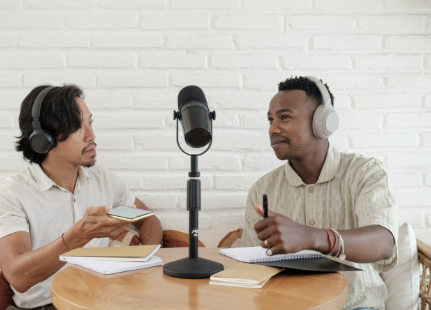Podcasts have emerged as a valuable tool in modern education, offering flexible, engaging, and accessible learning opportunities for students and educators alike. With the growing popularity of audio content, high schools are integrating podcasts into classroom instruction, extracurricular learning, and student projects. This format helps learners absorb information in a dynamic way while developing critical listening and communication skills.
One of the greatest benefits of podcasts is their accessibility. Students can listen to episodes anytime—on the bus, during study breaks, or while exercising—making it easier to fit learning into busy schedules. This flexibility supports different learning styles and helps reinforce classroom topics through repeated exposure and varied presentation formats. In addition, students who may struggle with traditional reading assignments often find audio content more approachable and engaging, boosting their confidence and interest in the subject matter.
Educators use podcasts to supplement lessons with expert interviews, real-world stories, and current events. Whether it’s a history teacher sharing a podcast on major historical events or a science teacher assigning an episode on climate change, the audio format brings content to life. Students gain a deeper understanding by hearing multiple perspectives and examples that may not be available in textbooks. Teachers can also use podcast series as the foundation for a unit of study, guiding students through themes over time and encouraging independent exploration.
Podcasts also encourage student voice and creativity. Many schools now offer podcasting clubs or include podcast creation in project-based assignments. When students script, record, and edit their own podcasts, they learn valuable skills in research, writing, public speaking, and digital literacy. These projects promote collaboration and give students a platform to share their interests and ideas with a broader audience. Student-created podcasts can explore topics ranging from local history and school news to personal interests and global issues, turning learners into content creators and community contributors.
Listening to educational podcasts improves comprehension, critical thinking, and vocabulary. Students practice active listening by taking notes, summarizing episodes, and discussing themes in class. Teachers often use podcast-based assignments to spark classroom discussions, encourage debate, or build connections across subjects. These conversations enhance student engagement and help learners make real-world connections to the material.
Podcasts are also useful for supporting differentiated learning. Audio content can be especially beneficial for English language learners and students with reading challenges. Transcripts, subtitles, and adjustable playback speeds help ensure that all learners can access and understand the material. In classrooms where multiple languages are spoken, podcasts with multilingual support or translated summaries can further support comprehension and participation.
Beyond academic content, podcasts are a great resource for social-emotional learning. Episodes focused on mental health, resilience, or student experiences help create a supportive classroom culture. Students can relate to the voices they hear and learn strategies to manage stress, build relationships, and navigate school life. Teachers can also introduce mindfulness or wellness podcasts during advisory periods or homeroom, encouraging reflection and emotional well













